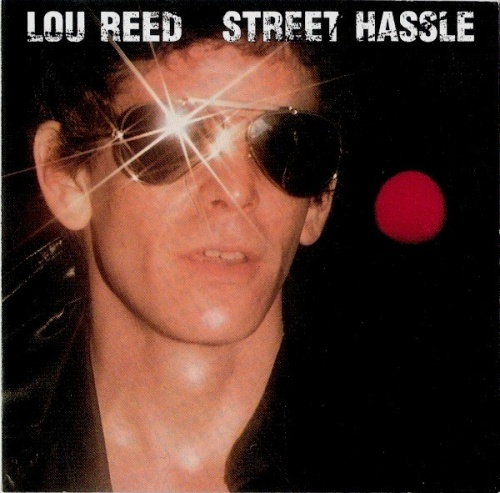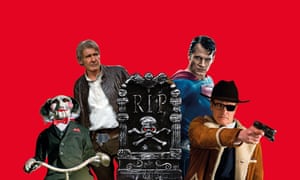Sunday, January 14, 2018
The Tattooed Girl by Joyce Carol Oates
Wednesday, January 10, 2018
The Huffington Post Rips Down an Article Sharply Criticizing Spotify — Here's the Original
The sublime "The Shape of Water"
Tuesday, January 2, 2018
These chops don't cut deep enough
Thursday, December 28, 2017
Show some grit for the MC5
Wednesday, December 27, 2017
Name Brand Kvetching
:format(jpeg):mode_rgb():quality(40)/discogs-images/R-9672184-1484526024-8131.jpeg.jpg)
 Lou Reed’s Street Hassle or David Bowie’s Station to Station, which album do prefer, love more, pick if you were going to be stranded on a desert island? A question to that effect appeared on one of the odd corners I visit on the internet looking for intelligent conversation on art and matters of concern that cannot be calculated by conventional metrics of worth. So, an interesting question, even if the choice between two superb albums makes one asks why these two, which are wildly dissimilar in their respective greatness. Compare and contrast? Perhaps Reed’s album New York, his inspired two-sided screed against the insoluble cruelty that inhabits the deeper and darker corners of a great city, compared and contrasted against Bowie’s Tin Machine project, an angular, Cubist kind of hard rock rage highlighting Bowie’s theatrical pronouncements against human creation of a misery index set against and appealing assault of shrapnel percussion and blood splatter guitar work? A more focused conversation, perhaps, but I remained with the question that was posted.I would choose Street Hassle if one desires street credibility and genuine amounts of poetic brilliance, both of which Reed despite his well-known habit of overestimating his overall musical genius. His musical punch was from his words wedded with the simple, scraping movement of his chords wedded with his especially acute and minimalistic detailing of lives in the streets, the doorways, the alleys of New York and its vast underbelly of fallen souls. Reed, at his best, had a feel for the characters in these unapologetic environs--sympathetic but not glorifying, poetic but not conventionally "beautiful" by more timid sensibilities--and on Street Hassle his greatest virtues, as such, are in full force. Reed was a writer before anything else, living in the shadows of a city that punished its geniuses with poverty, drug addiction and the contempt of the public, the authorities, and even the cast of good souls charged with taking care of them. This was fine with Reed and many of his cohorts; he was a man in the city, a maker of an invisible scene where the atonal heart of the experimental arts were in a social sphere so on the outs with whatever the hip community imagined itself as being that even the most vocally revolutionary of the millionaire rock and rollers and painters and filmmakers of the period wished they would simply evaporate and vanish in a dissipating gust of steam. Reed, Herbert Huncke, Burroughs, Henry Miller, in the belly of the beast, writing poetry, drinking, talking, painting at the outskirts of high towers of a city that provided with cold water flats and long, cold shadows to hide within. This is what Reed saw, wrote about, live amongst.
Lou Reed’s Street Hassle or David Bowie’s Station to Station, which album do prefer, love more, pick if you were going to be stranded on a desert island? A question to that effect appeared on one of the odd corners I visit on the internet looking for intelligent conversation on art and matters of concern that cannot be calculated by conventional metrics of worth. So, an interesting question, even if the choice between two superb albums makes one asks why these two, which are wildly dissimilar in their respective greatness. Compare and contrast? Perhaps Reed’s album New York, his inspired two-sided screed against the insoluble cruelty that inhabits the deeper and darker corners of a great city, compared and contrasted against Bowie’s Tin Machine project, an angular, Cubist kind of hard rock rage highlighting Bowie’s theatrical pronouncements against human creation of a misery index set against and appealing assault of shrapnel percussion and blood splatter guitar work? A more focused conversation, perhaps, but I remained with the question that was posted.I would choose Street Hassle if one desires street credibility and genuine amounts of poetic brilliance, both of which Reed despite his well-known habit of overestimating his overall musical genius. His musical punch was from his words wedded with the simple, scraping movement of his chords wedded with his especially acute and minimalistic detailing of lives in the streets, the doorways, the alleys of New York and its vast underbelly of fallen souls. Reed, at his best, had a feel for the characters in these unapologetic environs--sympathetic but not glorifying, poetic but not conventionally "beautiful" by more timid sensibilities--and on Street Hassle his greatest virtues, as such, are in full force. Reed was a writer before anything else, living in the shadows of a city that punished its geniuses with poverty, drug addiction and the contempt of the public, the authorities, and even the cast of good souls charged with taking care of them. This was fine with Reed and many of his cohorts; he was a man in the city, a maker of an invisible scene where the atonal heart of the experimental arts were in a social sphere so on the outs with whatever the hip community imagined itself as being that even the most vocally revolutionary of the millionaire rock and rollers and painters and filmmakers of the period wished they would simply evaporate and vanish in a dissipating gust of steam. Reed, Herbert Huncke, Burroughs, Henry Miller, in the belly of the beast, writing poetry, drinking, talking, painting at the outskirts of high towers of a city that provided with cold water flats and long, cold shadows to hide within. This is what Reed saw, wrote about, live amongst.Monday, December 18, 2017
Zsa Zsa Gabor Deserved all her Close Ups
Saturday, December 16, 2017
WE DISCUSS OUR DIFFERENCES IN A BAR AT THE EDGE OF THE WOODS
 |
| for Jill Moon |
The melting pot, Euro style
 |
| A Droite!--Big Boss Bubeleh |
Tuesday, December 5, 2017
from 1978, MY AIM IS TRUE by Elvis Costello
 |
| MY AIM IS TRUE--Elvis Costello |
The result is a pastiche of styles that sounds forced.The motivation is obvious to a disinterested observer, but Springsteen’s movements do not move me beyond recognizing that his is influences will remain hipper than he could hope to be. What constitutes the ephemeral, mystically conferred essence of hip on someone, I admit, is a mystery that is and will remain the subject of engrossing discussions and debates that will not find resolution. But I know it when I see/hear/read it, and Bruce Springsteen appears fated to remain an earnest hipster, another face in the chorus protesting the same hard knocks and cold soup. Patti Smith wants to merge early Sixties rock, ala Stones and "Louie Louie" with the legends of dead poets, sounding in the end merely silly.
Tom Waits combines black jazz hep jive with Jack Kerouac, and sounds stupid.From this parade of pretenders, the more jaded among us are leery of anyone trying the same thing. My Aim is True by Elvis Costello, takes one by surprise. Like Springsteen, the backbone 01 Costello's music is old rock and roll. But apart from that, they differ radically. Springsteen has a tendency to stretch his material to the breaking point, pouring crescendo upon toughness, and Costello's sing• crescendo. verse upon verse, ing, similar to Springsteen's trying to create an epiphany but more tactful, is full of that never culminates into pro- bouyancy, emotion and conviction. Costello, though, is without any overkill. What he loves about tin pan alley, the Brill Building , the hack songwriters of all callings, genres, convictions, was their mastery of craft. Mr. Costello knows when to weave narrative elements and spare details that contain a beginning, middle, and end. His sense of poetic irony, though influenced by Dylan and John Lennon, is entirely his own. He doesn’t mistake a song's verses occasions for wildly opaque analogies. or repeated and ineptly expressed philosophy. Instead, his stanzas are vivid items that logically follow one another in tone, temper, plot. One leaves these songs understanding the situation. What is understood is that Elvis Costello is angry with many people and that these songs are his chance to let them and the world know why he's ticked. It's an exhilarating feeling, seductive and alluring.
The stripped down to a vernacular (songs number twelve in all on the disc, unusual for a rock disc, and each exist as polished lyrical gems of a cynical, penetrating working class intelligence. Costello's strength, a virtue that Springsteen, Smith and Waits lack, is his ability to use rock cliches for their full value. Instead of brandishing them like a set of museum pieces that one is supposed to bow to in historical awe and respect, Costello gets the heat to the meat. The make takes ownership of them and does with them as likes.The rockabilly stuff is done with a verve that equals Buddy Holly, his use of reggae captures the required anguished, sinister mood, and his boogie material does a lot more than plot the course for the band. His lyrics, though, are imbued with a seventies sensibility, an awareness of absurdity , works minor miracles with the clichés. Though not notable for originality, My Aim Is True is honest work where the songwriter makes innovative use of what he's borrowed. Elvis Costello has an intelligence that can develop into something more complex and rewarding. My Aim, for now, suffices as an excellent example of how old forms may be revitalized, even reinvented from scratch, with the basic elements and energy renewed, if for a time, and be metaphorically capable of making the vulgarity , self-seeking and tangible afflictions that make life a cruel waiting room all melt into air and make you happy for the voice you hear next to you and the voice he or she is singing, grateful for the breath your taking, and feeling fully alive , if briefly, knowing that you and yours are not the only ones seeking transcendence. That is what great art does, if briefly.
Sunday, December 3, 2017
Two short tales of two snap shots with no moral of the stories (so far)
Tuesday, November 21, 2017
Justice League is a fun super hero film and Zack Snyder is a great director. There, I said it
Monday, November 6, 2017
Monkee Bidness
Even in movies, the dead should remain dead

Sunday, November 5, 2017
"Forever Changes" was released 50 years ago!
 |
| FOREVER CHANGES--Love |
I caught
wind that 2017 would be the fiftieth anniversary of the release of Love's
seminal record, Forever Changes—an occasion I could not let glide
past without a dutiful, a tribute, listen to the revered 1967 album. I was
mesmerized all over again by a shimmering range of materials: an acidic rock
guitar, martial rhythms, sad, almost mocking Mariachi horn sorties, a Spanish
guitar and tango beats, lush arrangements, MOR pop-jazz, and the cunning skill
to write the sort of private lyric that drew the listener closer to the
speaker, thirsting for the words, yet cruelly denying a comforting, a vulgar,
assurance.
There were
menacing undercurrents beneath the fleeting elegance, an album full of wide
roads, sharp terms, and an almost unbearable, idyllic optimism. It was as if
Arthur Lee, that vibrant vocalist and principal songwriter, had absorbed every
note of music—from every style that poured, a glittering sludge, from Los
Angeles radio—blending them with a master’s will, providing a true, an original
thing, something no one had, in all probability, ever heard before. It remains
a fascinating and dramatic document; it’s damn good music. The way this disc
moves, a chameleon on a plaid fabric, from one mood to the next, quickly but
not jarringly, from upbeat, dance-happy jazz to the serene yet melancholic
textures, shades, and tonalities the orchestrations create as they play over
the solid rock band base, remains amazing and, I think, utterly unequaled.
The Beatles
were antecedents, of course, in their clever employ of diverse musical styles
in their songs, mixing them up in ways rock and roll songwriters hadn't
imagined up to that time. But a major element of Lee's and Love's success in
diving headlong into that choppy eclecticism was a certain fastidiousness, an
avoidance of the limitless disasters of others who attempted their own, clumsy
versions of Sgt. Pepper.
Not all the
music on Forever Changes has aged well, alas. Lee’s lyrics
sometimes become a murmuring stream of hippie know-nothingism—a kind of
spiritual slumming. The guitar solos, though mercifully brief, are likewise
cringe-inducing, those atonal fuzz tone blasts that sour the album’s otherwise
sublime arrangements. Where, one wonders, were Hendrix and Clapton when their
savvy on the frets was so desperately needed?
All told,
this is only a nitpicking, a minor quibble, a footnote to genius. The record is
of its time and still creates a spell fifty years later. Arthur Lee was one of
the greatest of rock singers as well, an ironic commentary on identity
politics; we see this in his beautiful crooner style, which echoes the
under-considered talent of Johnny Mathis and Sammy Davis Jr., two pioneering
black performers who honed singing styles that were smooth, gallant, and
perfectly acceptable to large white audiences. We also see it in the way Lee
mastered the grunting, gravelly, slurring style of British singers like Mick
Jagger and Eric Burdon—two singers who tried to replicate the sound of their
heroes Muddy Waters and Howling Wolf but who, lacking the true vocal apparatus,
wound up creating a style of singing that was itself appealing and a valid
means of personal expression. Lee was equally smitten with both styles and
mingled them throughout his oeuvre; the silky croon and gruff belt combined for
an unexpected effect, mysterious and suggestively unique.
Two songs
particularly have remained with me these fifty years since I first heard this
record, melodies, chords, and winsome vocals that echo still amidst the
accumulated memories: the opening song, and the album's final song. The first,
written by the guitarist and singer Bryan MacLean, is the exquisitely flawless
"Alone Again Or." It begins faintly, a ghost of sound, volume slowly
increasing, a Spanish guitar and a sharp, insistent report of a small drum kit,
simple and elegantly finger-picked chords that bring us a confession of a kind,
a soul reaching out to a lover who leaves him alone in his isolation. The
second verse is a declaration, a statement of personal purpose:
"I
heard a funny thing /somebody said to me /you know that I could be in love with
almost everyone, I think that people are/The greatest fun…."
As the
melody charges, segues into a stirring horn solo and again fades off and then
builds momentum, we have the genius of the album, a mix of insight and naivete
trying to balance them out, contained in a gorgeous, simple framework.
MacLean's forlorn disquisition is about the battle of a man trying to bring
clarity to the many sensations his senses brought him. Each day a new hope,
every afternoon the same confusions of elation and sadness, each night a
solitude that embraces the narrator as fully as the sleep that will come over
him and so prepare him for the morning.
The album's
last tune, Lee’s masterpiece, is "You Set the Scene," a fascinating
stitchery of the kind of rush discotheque pulse where everything is noticed and
reality becomes a druggy collage. Details are word fragments, phrases, and
images that do not follow each other in a logical order; it is as good a
description of an acid trip as I’ve listened to. The trippy pulse of the first
section segues into the steady, marching stride of the second portion. Horns
blare a hearkening fanfare, drums kick in with a steady, even gait, and the
narrator seems to have crashed from his high after a vision and now allows his
eyes to scour the hillsides and valleys and consider, finally, the kind of
future he’d like to live in.
"Everything
I've seen needs rearranging /And for anyone who thinks it's strange/Then you
should be the first to want to make this change/And for everyone who thinks
that life is just a game/Do you like the part you're playing?"
Yes, this
smacks of the old counterculture conceits, the young man, smitten with The
Truth, saying farewell to parents and old friends to become genuinely
authentic. But Lee’s imagination prevents this from becoming a preposterous
demonstration. Lee’s voice soars, croons, quivers, strains effectively on high
notes, floating with confidence over the increasingly dynamic horn arrangement.
This is a march into the future; it astonishes me how magnificent this music
still sounds fifty years on. Forever Changes, Love's third album,
is considered by many to be the best American response to the Beatles'
bar-raising disc Sgt. Pepper's Lonely Hearts Club Band. As is too
often the case, Lee’s greatest creative period was short-lived; drugs, jail,
eccentricity, and erratic behavior prevented him from regaining the heights he
reached with Forever Changes.
Chickenbone Slim's "The Big Beat" (album review)
 |
| THE BIG BEAT--Chickenbone Slim |
Saturday, November 4, 2017
The Collected Poems of Ted Berrigan
t's not enough that we have the same first name and the same Irish second initial, my attraction to Berrigan's poems was the rather unbelligerent way he ignored the constricting formalities in poetry and rendered something of a record of his thoughts unspooling as he walked through the neighborhood or went about his tasks. "Where Will I Wander" is the title of a recent John Ashbery volume, and it might well be an apt description of Berrigan's style; shambling, personal, messy, yet able to draw out the sublime phrase or the extended insight from the myriad places his stanzas and line shifts would land on. The world radiated a magic and energy well enough without the poet's talents for making essences clear to an audience needing to know something more about what lies behind the veil, and Berrigan's gift were his personable conflations of cartoon logic, antic flights of lyric waxing, and darkest hour reflection , a poetry which, at it's best, seemed less a poem than it did a monologue from someone already aware that their world was extraordinary and that their task was to record one's ongoing incomprehension of the why of the invisible world. Things To Do In New York City:
"Wake up high up
frame bent & turned on
Moving slowly
& by the numbers
light cigarette
Dress in basic black
& reading a lovely old man’s book:
BY THE WATERS OF MANHATTAN
change
flashback
play cribbage on the Williamsburg Bridge
watching the boats sail by
the sun, like a monument,
move slowly up the sky
above the bloody rush:
break yr legs & break yr heart
kiss the girls & make them cry
loving the gods & seeing them die
celebrate your own
& everyone else’s birth:
Make friends forever
& go away " --Ted Berrigan
Thor: Ragnarok is the distraction we require
-
The firing of pop music Robert Christgau from the Village Voice by their new owners gives me yet another reason to pass up the weekly on the...
-
Why Bob Seger isn't as highly praised as Springsteen is worth asking, and it comes down to something as shallow as Springsteen being t...








